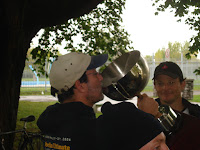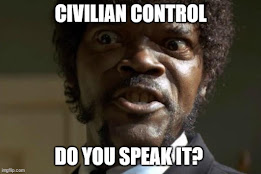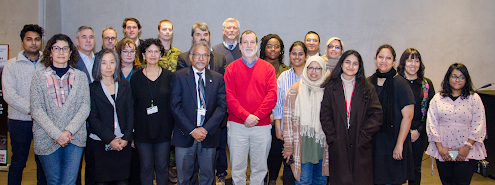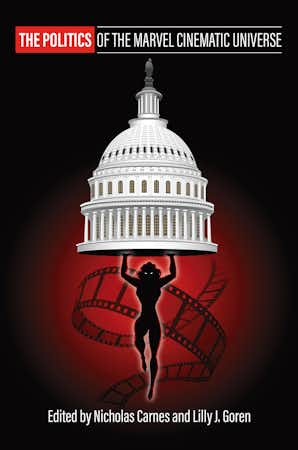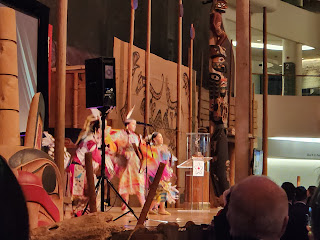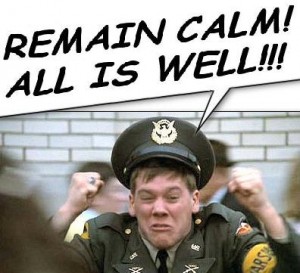Do Spew and 2 rhyme? I sure hope so as I begin my review of the year that was. The last time I blogged less than I did in 2022 was ... in 2008, when I didn't blog at all. What explains the decline? Partly exhaustion, partly a decline in imagination, partly other social media sucking up my time (the podcasts, now tooting as well as tweeting), and partly the reality that I have written enough stuff before that when the topic comes up, it is just easier to repost. Maybe a look at this year's posts will tell me a bit about what inspires me to write here and what does not, although survivor and recency biases may mesh nicely with my confirmation bias to prevent me from learning that much. Hmmm.
January
I started by pondering whether JK Rowling has utterly destroyed her legacy--whether I can still consume Harry Potter stuff. While I concluded that I could still enjoy the world she created, even as she betrays damn near all of it, my behavior, my choices, says otherwise as I had multiple opportunities to watch HP movies while hanging out at my mother-in-law's over the holidays and dodged all of them. Something I had not done in the past. Later in the month, I returned to the theme of what kinds of stuff can I read and enjoy given the complex realities of our time. I wrote about how it has become harder to watch and read cop shows given what we know about cops these days. I am finishing the latest John Sandford book which features multiple cops, Virgil Flowers and Lucas Davenport, solving a serial murder spree by bitcoin assholes, and have found it fairly compelling (unlike the most recent Jack Reacher book). So, maybe I am less affected by the topics than by the behavior of the artist?
The month ended with the start of the occupation of Ottawa by extremists--far right white supremacists. The year ended with an examination of whether the government should have invoked the Emergency Act. Um, yeah, but because the emergency was that the provincial leaders were cowards who wanted the feds to own it.February
The extremists in Ottawa became a focus for me, as it did for most of my city, for most of the month with posts on:
- outbidding, explaining why the Conservatives were pandering to the extremists
- anger, discussing how pissed off this made me, triggered indeed.
- policing, as I learned that Canadians think that the cops should not be directed by the politicians as if policing is not inherently political,
- my take on the Emergency Act.
And then the past came back to bite Ukraine and me. My previous work on irredentism became relevant again with Russia's invasion of yet more Ukrainian territory. In this post, I explained the basics of irredentism--that it is always bad for the country doing the invading even as it may or may not be bad for its leader, that domestic dynamics are key, and so on.
March
The focus of March was very much on the war in Ukraine. I argued via a bit of screenwriting why a No Fly Zone was a bad idea. I elaborated about the disease of MOAR. And, yes, I then invoked my work on irredentism to explain why Putin was willing to kill Russia's kin in order to "save" them. I wrote about limited war, a topic that got new energy this week as some retired generals expressed much frustration at the unwillingness of the US to send deep strike weapons to Ukraine.I also blogged about my appearance before the House of Commons Defence Committee.
April
This month had only a few posts, with nearly all focused on CDSN events. The outlier was a post discussing the appearance of Minister of National Defence Anita Anand in my Civil-Military Relations class. That was super-cool--a great way to finish off that course.May
I marked my 300,000th tweet before twitter's death spiral... maybe I caused it?
I discussed the two events organized by the CDSN Undergraduate Excellence Scholars--a conference and a hackathon. I also went to Germany for another conference. Woot!My last post took a first look at the Arbour report, where a retired Supreme Court Justice assessed the Canadian Armed Forces and why it has fallen short, yet again, on reforming itself when it comes to sexual misconduct. I took a quick tour of the 48 recommendations.
June
I didn't write much in June, but two of my posts continued my examination of the Arbour Report: here and here. In the first one, I pushed on a point that will become a key question in my next project--what is the proper rule of a defence department or ministry or agency? Arbour says DND is to support the CAF, and, no, nope, nuh uh. This does help to explain a big problem with this and previous reports--having a very limited view of what DND's job is. I also focus on the lack of a recommendation for an Inspector General, which is now a topic of research of this year's Visiting Defence Fellow.I also marked my 10 years in Ottawa with this post. I am so glad that the tides of the academic job market washed me ashore here. It was not my plan, but it has worked out wonderfully.
July
July was a month of ups and downs. I started the month by pondering how long might the autocratic moment in the US last if Democracy were to give way. The most pivotal building at my old summer camp burned down, but there was much resilience that day and beyond to give me hope for its future.
One of the ups was the new season of Battle Rhythm. I am forever grateful to Stéfanie von Hlatky for helping us launch our podcast, and I was sad to see her move to admin stuff at her university. But we got re-energized by a new crew of co-hosts. Artur, Anessa, Erin, and Linna have provided a variety of perspectives since they joined us. I am most grateful to Melissa Jennings for doing most of the heavy lifting in this effort and to Carelove Doreus and Racheal Wallace for their carrying the rest of the load.
It has been a big year in Canadian civil-military relations, and one of the highlights was the decision to adjust the uniform standards to make the CAF more welcoming to more people. I addressed these changes with some accidental foreshadowing of the awful Vimy speech by one of those responsible for the culture crisis that prevented the CAF from adapting sooner.
The month, which started with COVID finally hitting me and Mrs. Spew thanks to a conference trip to Berlin, ended in an upswing with both Beulahfest as my mom celebrated her 90th birthday and, yes, Stevefest, as I did a heap of stuff to celebrate another year of me.
August
Not many posts this month as I was very busy organizing and then
hosting the first in-person CDSN Summer Institute. It was one of the original ideas animating the big grant application, and it was great to see it finally come to fruition with so many sharp people speaking and participating. Plus it was an excuse to have a reception or three. Just a great week worth all the effort by the CDSN team.Much news about classified documents thanks to Trump hoarding documents he should have had anymore, so I shared what I had learned during the year I had a top secret clearance and worked every day in a SCIF--secure compartmented information facility.
Finally, I said goodbye to a key part of my life--ultimate frisbee. I just kept getting injured and could not stay on the field. I could still throw well, but that whole running thing proved to be too much. I very much miss it, it gave me friends across North America, it gave me some level of fitness, it gave me heaps of silliness, and nothing can fill the hole it left behind, alas.September
Another light month for blogging. I wrote a guide for those visiting Montreal for the American Political Science Association meeting.
The focus of the month and of my career these days was/is civil-military relations. I wrote about the retired generals and SecDefs providing advice on how to manage this relationship. And then I addressed a recurring challenge up here--should the Canadian military prioritize domestic emergency operations? Whether the CAF wants to or not (not), climate change is going to make this happen. It already has. I am getting more and more interested in studying domestic emergency ops in part because few defence scholars have done so. Nothing like having a wide open field to pass the disk into. Oh wait, that was last month's post about ultimate.One reason I didn't post more in September is that I was headed west to Disneyland and to visit my daughter (not necessarily prioritized that way?).
October
I gave thanks for all kinds of stuff as Canada celebrates Thankgiving in October when Americans debate the role of Columbus.
I spent the rest of the month preparing both the CDSN Midterm Report for one of our funders and a conference to mark the midway point in our SSHRC grant. It was great to hear from the co-directors of the various research efforts--Civ-Mil Relations, Personnel, Security, and Operations. We were once told that the CDSN was just me and my friends dong stuff, but, to be clear, when it started, many of those who joined as co-directors were not friends and some were barely acquaintances. Now, we are friends, but isn't that how networking works when it works well? I am very proud of what we have put together even if it put a major dent in my blogging.November
Was the theme of the month commenting on other people's mistakes? Seems like it with a post on twitter's dramatic decline thanks to Musk and then the craptastic speech by a retired general. That post generated more hits than any other this year and is in the top five of my 13 years of blogging. The related tweet was also the most tweeted/impressioned tweet of the year and then some. It led to a post addressing "woke" and being "anti-woke," which helped me think about vice-signaling, the flipside of virtue-signaling.
I got to put on my old NATO hat when some errant missiles from Ukraine's war with Russia landed in Poland. I did much media as well to explain that NATO does not work the way may folks think--that there is nothing automatic about it, even if the attack had been deliberate.
One reason I blog less is that I simply have not been writing that much about pop culture here. Why? Mostly due to lack of time. One exception to this was thinking about the International Politics of the second Black Panther movie.
December
The year ended with much CDSN and much cookies!
I went to Winnipeg for the first time for a CDSN workshop on Domestic Emergency Operations. This is the focus of one of our four MINDS (DND) funded research projects. I learned a great deal from sharp people both in and out of the government. There is much work to do here, and I am glad we have made this one of our foci over the next three years.
I finished the year with a heap of baking--cookies for friends around Ottawa. The basic idea is this: I want to eat a lot of different kinds of cookies. But then making so many different kinds means finding people who are willing to take most off my hands or else I will gain a heap of weight (winterfest did that anyway). I enjoyed my first cookiefest in 2020, which was the first time I saw many people after months and months of quarantining. So, I keep doing it, now armed with better equipment (kitchen aid stand mixer makes it much easier than the first cookie fest) and more recipes. It is not just the baking and the eating. I got to chat with a bunch of great people as I delivered the cookies. If the cookies are joy (and, yes, they are), giving joy leads to receiving much joy.
One of the interesting dynamics of 2022 was the re-emergence of blogging. That many folks started writing on substack, which, to me, seems like blogging but with the chance of income. I have not moved over there as I am pretty happy with this perch. It does not make me money, but I doubt that people would pay that much for my half-baked (semi-spewed) writings. One of my New Year's Resolutions is to blog more. My guess is that I will be more successful at that than the ones focused on dietary restraint.
May you and yours have a terrific 2023!







